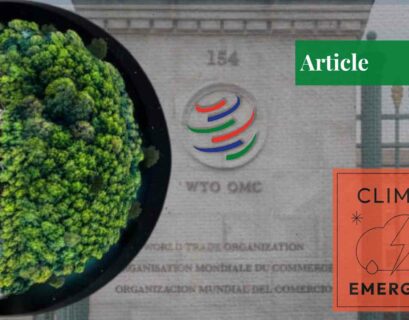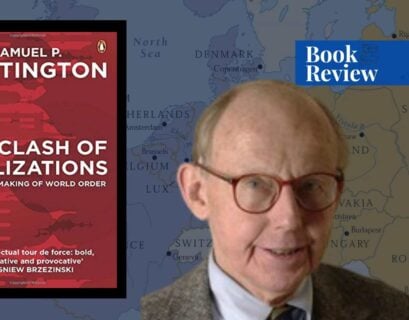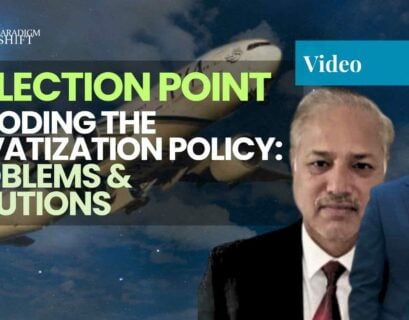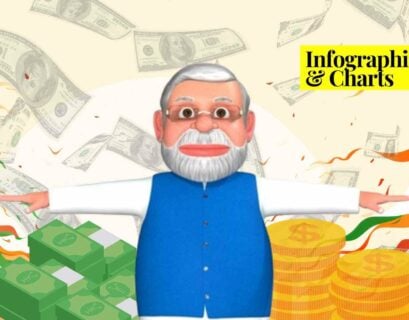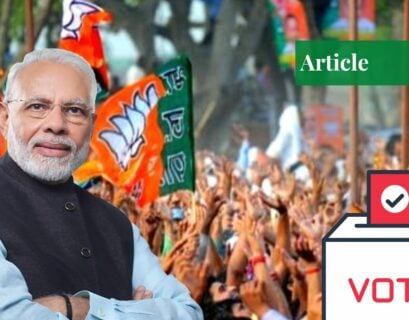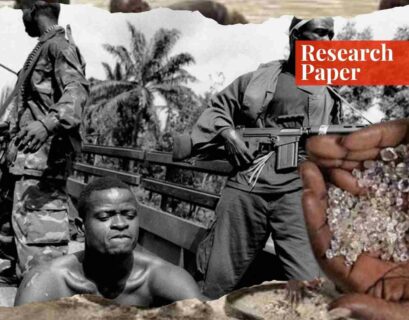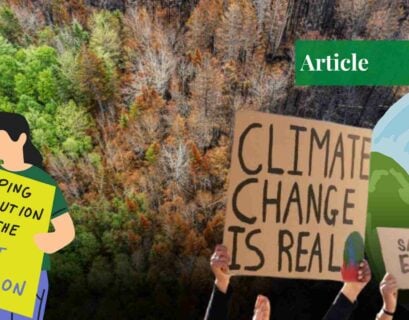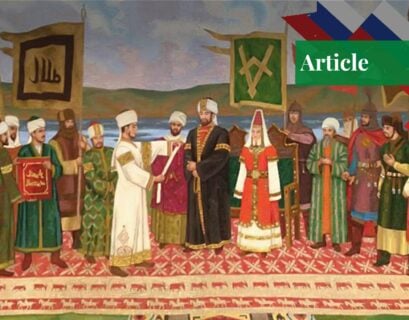How Tourists are Ruining Travel Destinations
Tourism has long been a part of the world. It is also beneficial for the visited areas if done responsibly. However, the growing phenomenon of over-tourism has negatively affected the environment and landscape of the tourist spots and the lives of the local people. The tourism industry exploits the local areas, leading some to believe tourism is a neocolonial venture. Therefore, responsible and sustainable tourism is needed to rein in the negative aspects of over-tourism.
Analyzing the Iranian and Israeli Counter-Strikes
April has been eventful for security analysts and geopolitical experts.
The long and bitter rivalry between Iran and Israel was fully exhibited by the repeated strikes and counter-strikes between the two.
There is something oddly interesting about these retaliatory attacks, and Abdullah Nisar shares his take on the attacks between 1st and 19th April and how things will play out.
Will Iran make its move against Israel for the Isfahan attacks?
PIA Losses Over the Years
Pakistan International Airlines (PIA) has faced financial troubles due to severe safety issues and has accumulated losses of billions of rupees.
As the airline accrues more damages, the Pakistani government has decided to privatize it, leading to disagreements between different ministries. The airline’s CEO warns that if not restructured, its annual loss could reach Rs259 billion by 2030.
Global Governance Over Climate Change: Case Study of the World Trade Organization (WTO)
Several factors hamper global governance over climate change, such as the overwhelming North-South divide, institutional stagnancy, and rampant capitalism.
Shiza Ahmed built upon the case study of the World Trade Organization (WTO) and detailed how it could play an impactful role in alleviating the effects of the climate crisis.
What kind of reforms would the WTO have to undergo to help curb the effects of climate change?
Europe: The Architect of the Palestinian Conflict?
With the ongoing war in Gaza, Palestine has been dubbed an “open-air graveyard” by the EU’s Josep Borrell. Bilal Hyder Simair condemns Europe’s superficial concern for Palestinians and their land when it has been complicit in sowing the seeds of the Palestinian conflict in the first place. He notes that the European states and the US have actively supported Israel and its heinous war crimes in Palestine for decades and have, therefore, actively failed humanity, not just the people of Palestine.
“The Clash of Civilizations and the Remaking of World Order” by Samuel P. Huntington
“The Clash of Civilizations and the Remaking of World Order” by Samuel P. Huntington is considered a groundbreaking book in world politics and international relations. In the wake of the post-Cold War world, Huntington’s theory of civilizational conflict presented a different perspective on the course of future politics. The theory reshaped the international system by cementing it in eight civilizations, each with its own values and institutions.
Maskirovka, A Russian Military Strategy—Is the Element of Surprise Still Relevant?
Maskirovka has always been an elusive term, often times used crudely at any Russian perceived act, but there is more depth, complexity, and meaning to maskirovka than some immoral Russian trickery.
It is a military art, deemed reliable since its first use against the Mongols. It is a way of war, and along with it comes the element of surprise, an under-rated part of maskirovka.
Alishbah Syed explores the concept of maskirovka and the continuing relevance of surprise in it.
Provincial Power Up: Analyzing the Devolution of Power in Pakistan
In Pakistan, the shifting patterns of political and military rules have had profound effects on the development of grassroots democracy, including on the form and design of local government institutions.
Accordingly, the nation has been subject to both ‘dictatorial democracy’ and ‘democratic dictatorship’ in terms of its municipal governments.
Fatimah Naeem and Haffiza Syeda Azkia Batool chart the evolution of decentralization, from the Devolution of Power Plan 2001 (DOPP) to the 18th Amendment.
Inflection Point Ep. 2: Decoding the Privatization Policy with Dr. Sadiq Ali
In the 2nd episode of our interview series, ‘Inflection Point,’ we introduce you to Dr. Sadiq Ali, an experienced civil engineer who has lead multiple infrastructural projects.
Dr. Sadiq shares his take on the recent privatization streak of mutiple national companies.
BJP’s Financial Power: A Pakistani Perspective
BJP is gearing up to be elected for the third time. As the 2024 Lok Sabha elections roll around, it is a need of the hour for Pakistanis to truly grasp the enormity of this party, its influence, and extensive resources as it heads in for the seven phases of elections.
Meet the Indus River Dolphin: The National Aquatic Mammal of Pakistan
The Indus River dolphin, often confused with the Ganges River dolphin, is an endangered freshwater mammal. With a distinct long snout and stocky body, it has adapted to the river’s murky waters, relying on echolocation for navigation and hunting. The cetacean is threatened by pollution, habitat degradation, and river damming, causing its population to dwindle drastically. As one of the rarest dolphins in the world, conservation efforts, including habitat protection and community awareness programs, are crucial for preserving this iconic species and safeguarding the health of the Indus River ecosystem.
Democracy in Peril: India’s 2024 Lok Sabha Elections & Modi’s Assured Return
The 18th Lok Sabha elections in India are expected to be won by the incumbent Bhartiya Janata Party (BJP) and Prime Minister Narendra Modi.
However, concerns have been raised about the BJP’s policies of authoritarianism, which threaten democracy, secularism, and the protection of minorities within India.
Pareesa Memon highlights BJP’s catastrophic history and its increasing marginalization of minorities. She expresses concern that with a third term, the BJP will further reduce space for dissent, debate, legislative scrutiny, and oversight.
What Caused the Sierra Leone Civil War (1991–2002): Greed or Grievances?
When it comes to civil wars, the causes are often categorized into two types: those driven by greed and those driven by grievances.
Rabbia Saeed applies this debate to the 1991-2002 civil war in Sierra Leone, a country infamous for its blood diamonds.
She deliberates on the roles of the two main perpetrators of war and contemplates which factor outweighs the other in the case of Sierra Leone.
Global Institutions and International Agreements on Climate Change
The issue of climate change is caused by anthropogenic greenhouse gas emissions from activities such as the use of fossil fuels and agriculture, and natural sources such as forest fires and volcanoes.
Shiza Ahmed notes an urgent need for global consensus and collective efforts to mitigate and adapt to the issue.
Tales from the Steppes: The Presence of Muslims & Islam in Russia
The history of the Muslim communities in Russia dates farther back than the collapse of the Soviet Union.
This article delves into the rich heritage of Islamic traditions in Russia, from the early interactions with Tatar Muslims to the modern-day expressions of faith among diverse Muslim communities.
Fatimah Naeem examines the challenges and opportunities faced by Muslims in the Russian state, including issues of religious freedom, cultural integration, and political representation.
She also highlights the contributions of Islam to Russian culture and society, showcasing the resilience and diversity of Muslim identities within the Russian Federation.
The Iran-Israel War: A False Front of Power
The Iran-Israel war has been making headlines in April, and rightly so—the fear of a WWIII happening has the world glued to screens now, more than ever before.
Lt Gen (R) Tariq Khan has a different view of these attacks between Iran and Israel. He deems them only to be an act; a play that appears to show both countries as protagonists.
The Iran-Pakistan Gas Pipeline Project: Diplomacy and Pakistan’s Options
Pakistan is facing challenges in navigating its relationship with the United States and its neighbors, particularly concerning its energy project with Iran.
Tufail Abbas argues that the United States’ diplomatic brinkmanship vis-à-vis the Iran-Pakistan gas pipeline is an attempt to deprive Iran of breathing space and inflict damage on its economy. United States’ global image and standing have been on the decline due to its domestic irregularities, financial hardships, and eroding external influence.
He argues that Pakistan should adopt a non-adventurist external posture, engage with all major powers, and rally support for a more democratized, pluralistic, and multilateral global order.



